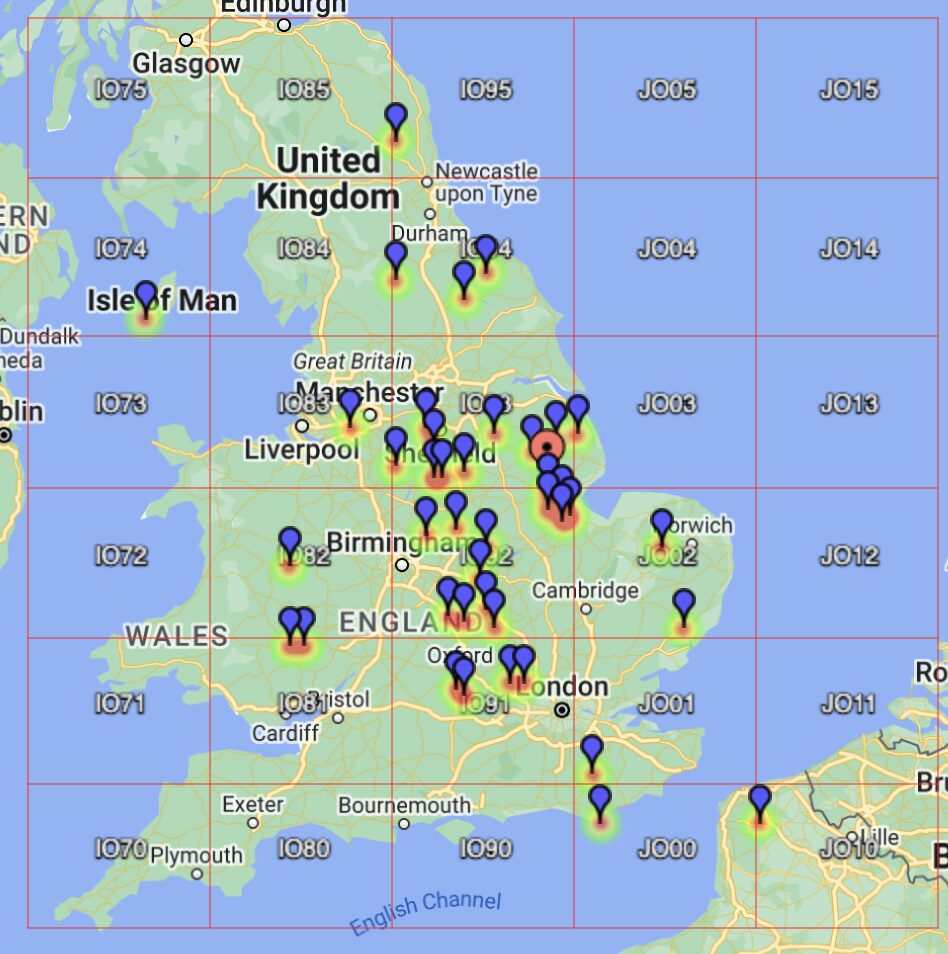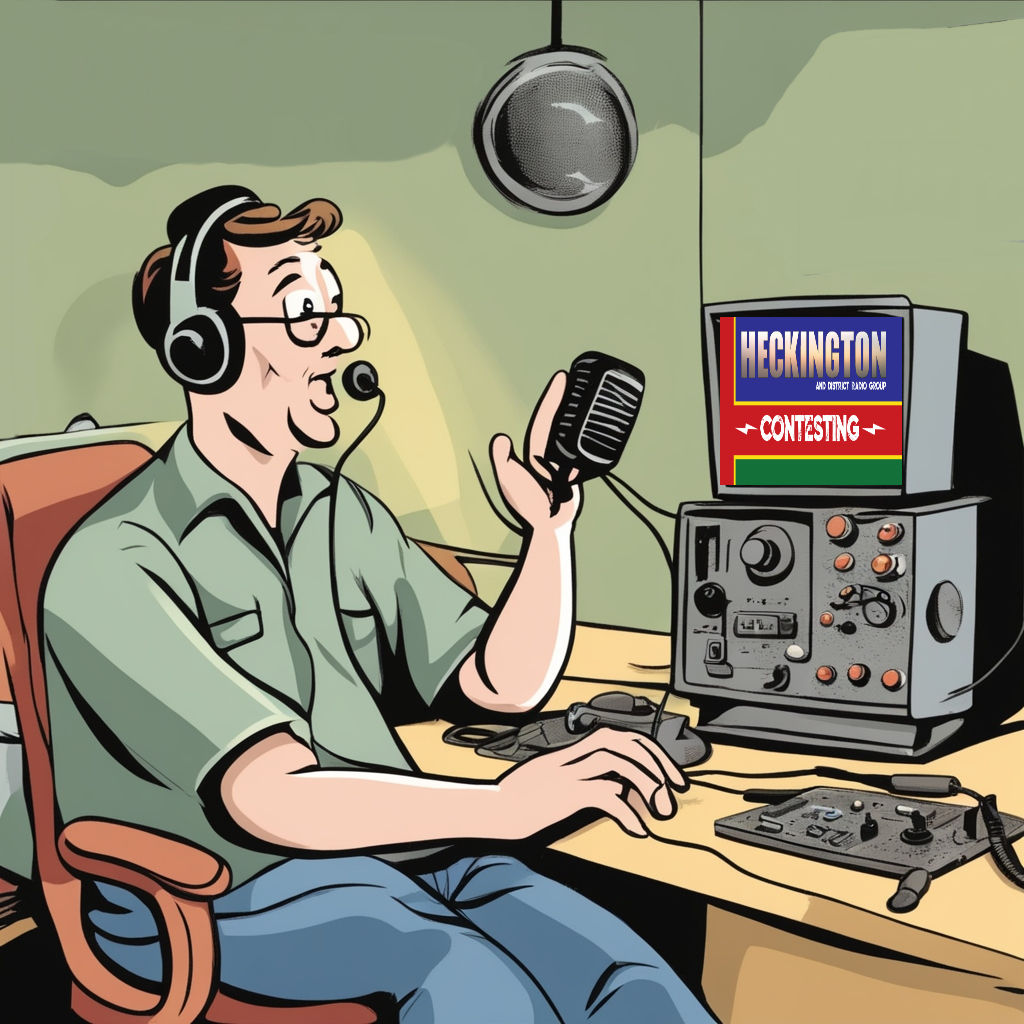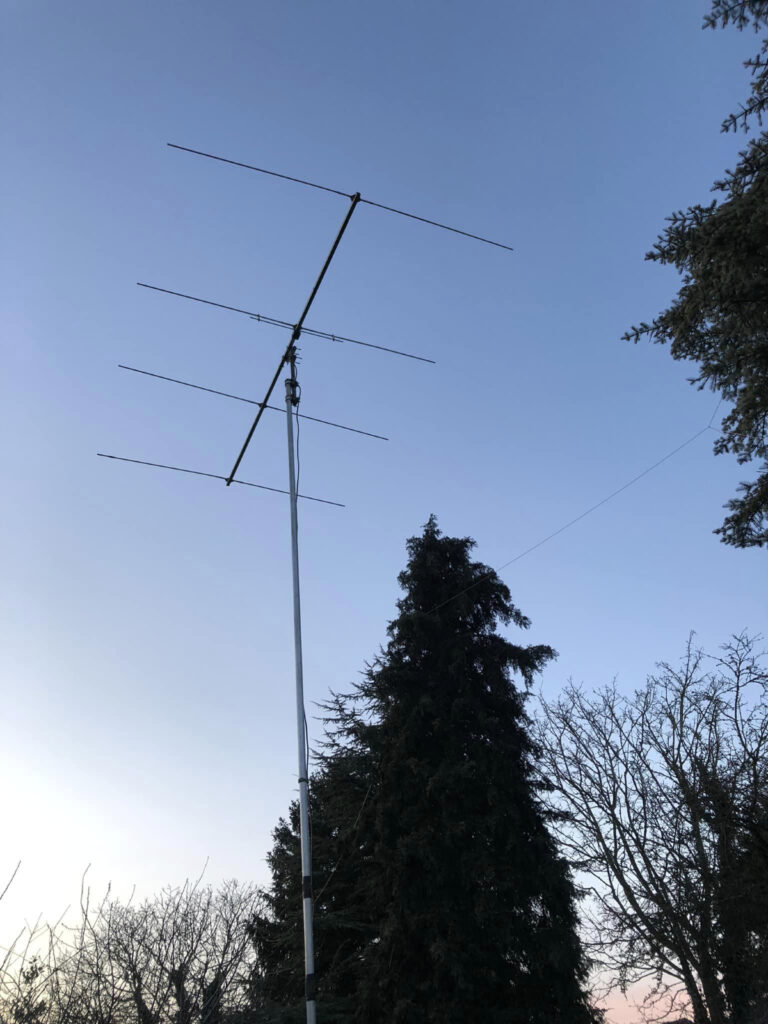VHF/UHF Amateur Radio Contesting with H&DRG

Contests are not everybody’s cup of tea, let’s face it. But, even if you’re not competitive, they can be a lot of fun and, at times, a very exciting branch of the hobby.
These days, the VHF/UHF bands are often not particularly busy. This is especially true of the SSB segment of these bands. But during contests there will be hundreds of active stations keen to work you, so contests are a great way (and one of the only ways!) to enjoy periods of significant activity.
If you are competitive, then it can be fun testing yourself and your station’s performance against your mates and other amateurs. And, of course, for clubs and their members, being part of an active contest group is a great motivator to get on that radio and excellent publicity for the club. So, why not help us put Heckington & District Radio Group on the contesting map by joining the team!
How do radio contests work?
Each contest series has its own rules but the idea is usually to work as many stations as you can over the course of the contest period. Points may be awarded according to the distance between you and each of the stations you work and sometimes, extra points or multipliers are awarded for the number of four-digit locator squares or countries you work (if you are not sure of your locator square, check it out here).

The are club contests (where your points go to your club’s score), individual contests (when you are in direct competition with other entrants) and contests for both. Contests sometimes also have sections for low power, as well as higher power stations. If you are using low power (as a Foundation station, for example) this may not be a disadvantage as some contests are weighted to balance out scores, so newbies can do do surprisingly well.
Some contests are one-off and others are repeated throughout the year, with a running league table (e.g. the RSGB’s UKAC series). Some require you to be a member of an RSGB affiliated club. Luckily for you, Heckington and District Radio Group now is so you will always be able to take part as a member of H&DRG!
How do I join in with a contest?
To join a contest, all you need to do is tune to the appropriate section of the relevant band at the appropriate time. To work stations you can either call ‘CQ Contest’ or answer stations calling ‘CQ Contest’. Once you establish contact there is a fixed exchange, which you must complete, during which certain information must be successfully passed and recorded in your log.
What is a typical exchange?
Usually the exchange is callsign, signal report, serial number (beginning at 001 and counting up for each contact your work) and 6-digit locator square.
So, a typical exchange would go something like this: –

M1ABC: – “CQ Contest CQ Contest. This is Mike-One-Alpha-Bravo-Charlie. CQ Contest.”
G1DEF: – “Mike-One-Alpha-Bravo-Charlie , this is Golf-One-Delta-Echo-Foxtrot.”
M1ABC: “Golf-One-Delta-Echo-Foxtrot, good evening. You are five-nine, zero-zero-six, in Italy-Oscar Nine Two Alpha Bravo.”
G1DEF: – “Roger, Mike-One-Alpha-Bravo-Charlie. You are five-nine, zero-one-seven, in Juliet-Oscar-Zero-Two-Delta-Echo.”
M1ABC: “Golf-One-Delta-Echo-Foxtrot, all copied, thank you. 73.”
(Note, there is normally no further conversation. Most contesters will be keen to move on to the next contact, to maximise their score.)
How do I record these exchanges?
You record exchanges in your contest log. It is important to be accurate as mistakes will result in lost points. So, take your time, especially while you are new to contesting.
Some contesters will pass the exchange particularly quickly but don’t be afraid to ask them to repeat details if you didn’t hear them or didn’t get all the details recorded. It will be in their interest, as well as yours, to make sure you get the exchange 100% correct.
Some operators use computer logging (there are many apps available for this) and others use a paper log. After the contest you either send or upload your log using the contest organiser’s system (if you used a computer log) or transcribe your log manually on the system if you used paper.
I have heard some HF contests and I’m not sure I could keep up!
Yes, HF contests can be like that but generally VHF/UHF contests are slower paced and somewhat more relaxed. Operators are generally keen to work and welcome new stations as it is good for the contest.
Do I need lots of expensive kit?
That depends on what you want to achieve and how quickly. Some of the most successful and experienced contesters have huge towers, stacked multi-element antennas or dishes and top-class transceivers, amplifiers and so on. Fortunately for the rest of us they are in the minority in the UK! There are hundreds of other operators who don’t have anything like that kind of set up (around 600 stations enter the UKAC’s each year). About half of them will have moderate contest set ups and the other half will be using everyday stations, without any specialist antennas or equipment. So, it is entirely possible to achieve a respectable result with a small station.

The UKAC (‘UK Accredited Clubs) Championship runs throughout the year, with legs on each VHF/UHF band every month. Modest stations which take part regularly can accrue surprisingly big scores – persistence counts! Aiming for a top-half finish in the league is realistic if you put in the effort. Plus, of course, your points also go to the club and together the members in a club can achieve greater things!
Are there any contests specifically for beginners?
Yes, the RSGB has created a series called the “FMAC” series. This is a club/individual championship, designed specifically for new contesters. Whereas most contests are sideband-based, in which contests use multi-element beam antennas, the FMACs take place on the FM segment of the relevant bands using FM only. Entrants often use simple FM radios and vertical antennas. This means that pretty much anyone can take part without needing to buy additional equipment. There are FMAC contests on the 2m and 70cm bands every month, throughout the year.
The UKAC Championship
This is the main contest series which Heckington and District Radio Group enters. There are legs on 6m, 4m, 2m, 70cm, 23cm and SHF each month. They take place on specified Tuesdays and Thursdays. Entrants don’t have to enter all legs. We currently have nobody entering the SHF legs, though 2E0VPX enters all the others for H&DRG.
The schedule for these contests is regularly updated.
Check out the other contest resources available on tour website.
